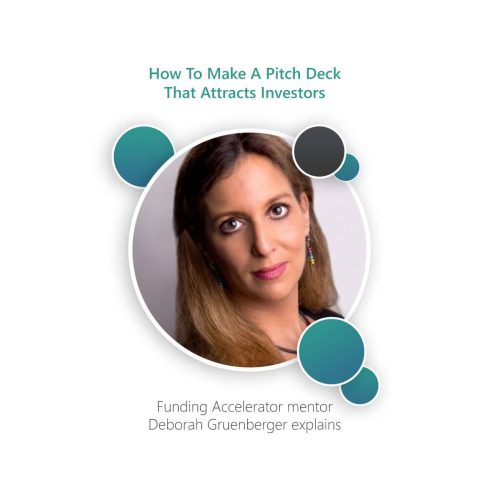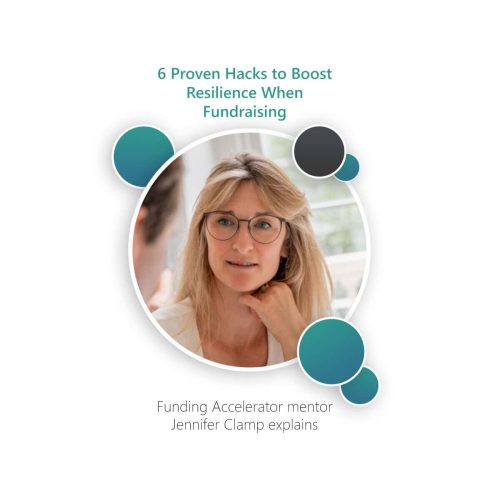When it comes to turning your brilliant startup idea into a thriving business, one thing is clear: you need funding. Whether you’re pre-revenue or just starting to gain traction, securing investor finance is often the key to unlocking your business’s potential. And who better to provide that early-stage boost than angel investors?
Angel investors are the unsung heroes of the startup world. These individuals, armed with their own money, experience, and a passion for entrepreneurship can help you fund your startup and set it on the path to success with advice on strategy. But how do you find these investors, and what makes them tick? Let’s find out.
What Are Angel Investors?
Angel investors are individuals who invest their personal money into startups they believe in. Unlike traditional venture capitalists, who invest institutional funds against strict criteria and often back more established businesses, angels are free to follow their instincts. They can afford to take risks on early-stage startups, even those that are pre-revenue, if they see potential for growth and innovation.
Here’s the kicker: angel investors don’t just bring money to the table. They’re often seasoned entrepreneurs or industry experts who can offer mentorship, connections, and strategic advice. Think of them as your business’s fairy godparents, minus the magic wand, but with plenty of real-world know-how.
Why Are Angel Investors So Important for Startups?
The value of angel investors goes far beyond their financial contributions. Because they’re investing their own money, they have the freedom to back businesses that excite them, even if those businesses are still in their infancy. This means they’re often the first type of investor to take a chance on a startup.
Angel investors are particularly valuable for startups that:
- Are in the early stages and may not yet qualify for venture capital or bank loans.
- Have innovative ideas but need funding to develop their product or service.
- Are ready to scale quickly and need both capital and strategic guidance to do so.
By securing angel finance, you can get the funds you need to cover your startup costs while benefiting from the investor’s expertise and network.
Where Do Angel Investors Operate?
Angel investors rarely work alone. They often club together in angel networks or syndicates, which are groups of investors who pool their resources to back promising startups. But what’s the difference between a network and a syndicate?
- Angel Networks: These are larger, more informal groups of investors. Members share deals, exchange advice, and sometimes co-invest. Networks allow startups to pitch to multiple investors at once, increasing their chances of securing funding. Examples of angel networks in the UK include London Business Angels and the Angel Investment Network.
- Angel Syndicates: Syndicates are smaller, more structured groups where investors work together on a single deal. Typically, a lead investor takes charge, evaluating the opportunity and representing the syndicate’s interests. Syndicates can provide significant funding amounts because multiple investors pool their resources into one investment.
Both networks and syndicates offer startups access to not only capital but also a diverse range of expertise and connections. The choice between the two depends on the size and structure of the investment you’re seeking.
What Do Angel Investors Look For?
If you want to attract angel investors, you need to know what they’re looking for. Generally, they’re drawn to startups that show:
- Early traction: Whether it’s a prototype, beta customers, or impressive market research, show that you’re taking action.
- Scalability: Angels want to see a business model that can grow rapidly and generate strong returns.
- Passionate founders: Your belief in your business will need to shine through. Passion is contagious, and convincing.
Keep in mind that angels often invest in sectors they’re familiar with, so tailoring your pitch to align with their expertise can be a huge advantage.
How to Find Angel Investors
Finding the right angel investors might sound like a daunting task, but there are plenty of resources available to help you connect with them. Here are some tried-and-true methods:
- Angel Networks and Platforms: Online platforms like AngelList or the Angel Investment Network are great places to start. They connect startups with a wide pool of angel investors and allow you to pitch your business directly to those who are actively looking for opportunities.
- Local Angel Networks: If you’re in the UK, you’re in luck. There are numerous angel networks in the UK, from regional groups to industry-specific ones. You can explore a comprehensive list of UK angel networks here.
- Angel Investment Events: Many angel networks host regular pitch events or forums. These are fantastic opportunities to meet investors, present your startup, and gather valuable feedback.
- LinkedIn and Networking: Never underestimate the power of personal connections. Platforms like LinkedIn can help you identify and reach out to potential investors, especially if you’re targeting those within your industry.
For more ideas for finding investors read our guide to Startup Funding.
Securing angel investor finance could be the step that takes your startup to the next level. These investors aren’t just funding your business, they’re backing your vision, your potential, and your passion. Whether you connect with them through an angel network or syndicate, building relationships with angel investors can provide the support and resources you need to grow.
The key to success? Be prepared. Know your business inside and out, understand what investors are looking for, and tailor your pitch to showcase why your startup is worth backing. With the right approach, you’ll be well on your way to turning your business dream into a reality. Do you need help with making sure that you’ve got all bases covered when it comes to attracting investment? Book a free Funding Strategy Workshop with us today and get your questions answered.
- How to Find Investors (Without Losing Your Mind) - June 17, 2025
- How to Raise Money (Without Losing the Plot) - June 9, 2025
- How I Raised £250K – and Help Other Founders Scale with Equity Funding - June 9, 2025






















